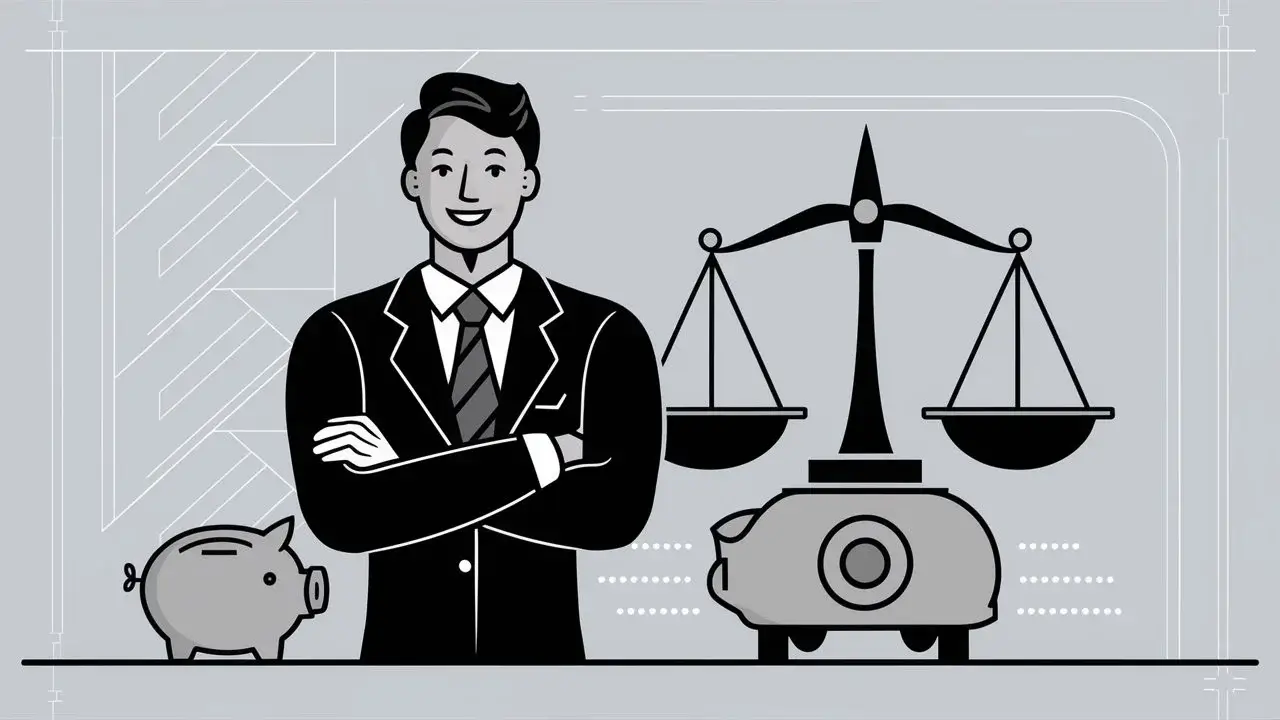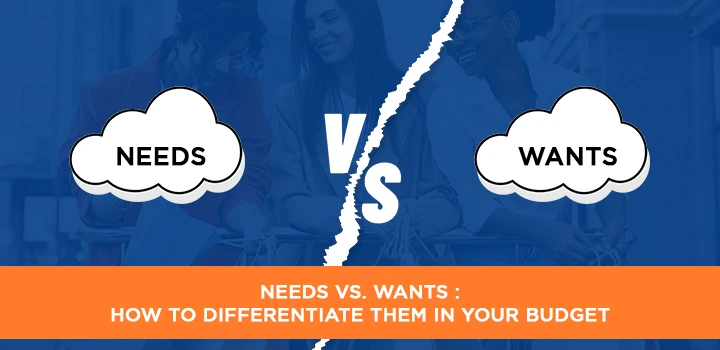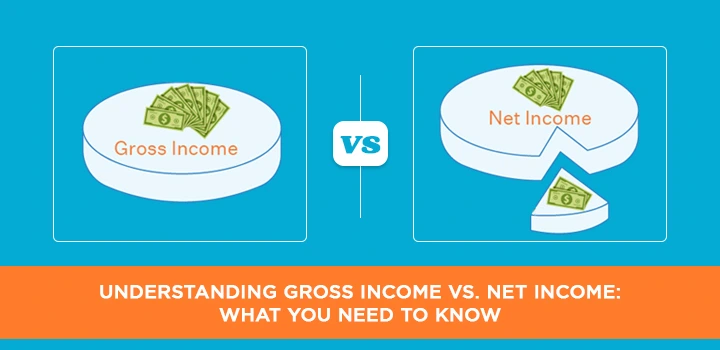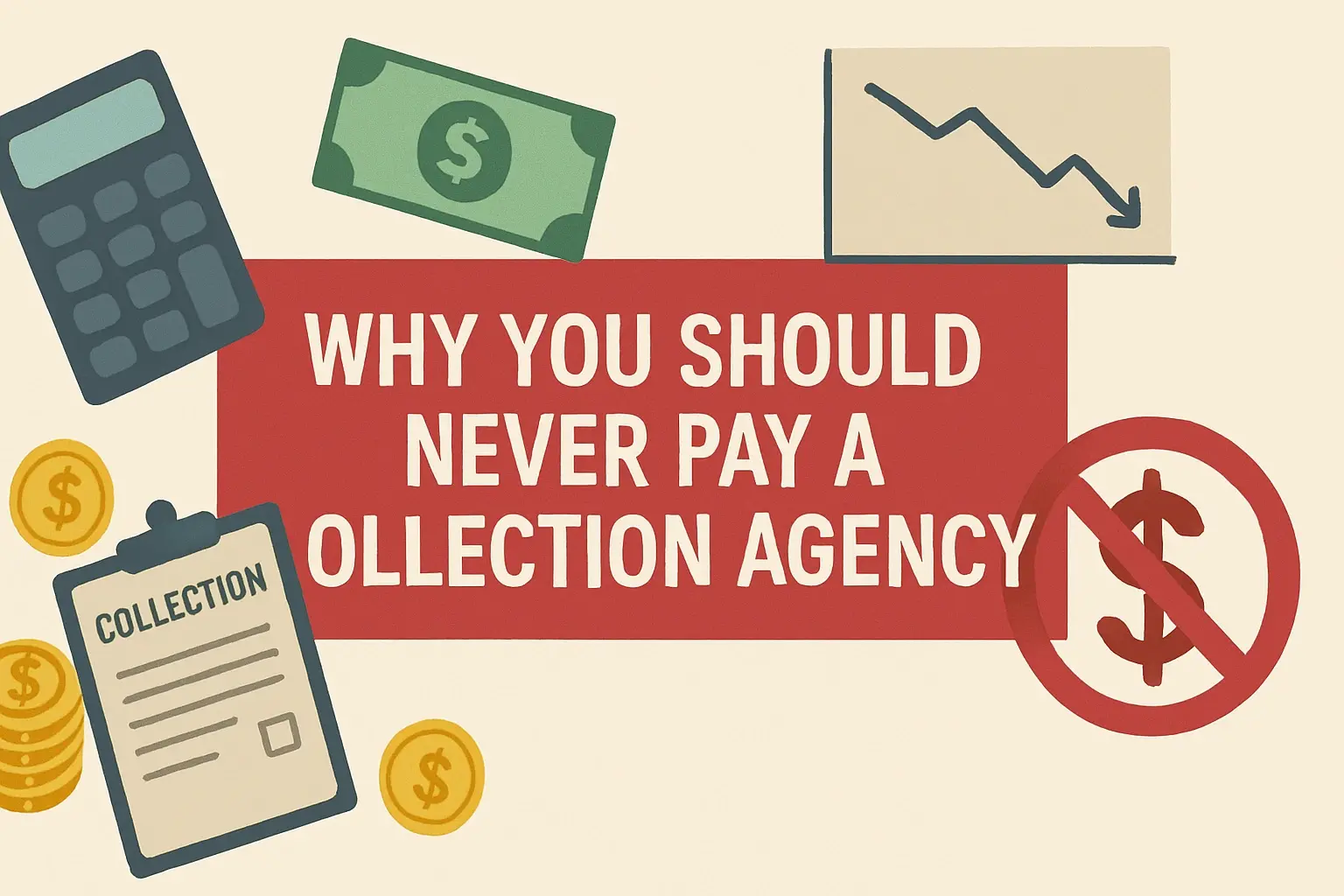-
Posted on: 24 Dec 2022
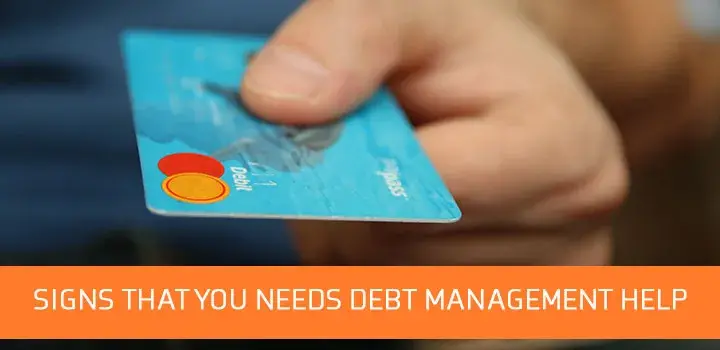
-
Feeling overwhelmed by mounting debt? Recognizing the signs you need debt management help is the crucial first step toward financial freedom. This guide will illuminate the indicators that signal it's time to seek expert assistance and regain control of your finances.
Understanding Your Debt Burden
Debt, in its various forms, is a common part of modern financial life. Mortgages, car loans, student loans, and credit card balances are all examples of financial obligations that can help individuals achieve significant life goals. However, when the accumulation of these debts begins to outpace your ability to manage them, it can quickly transform from a tool into a significant burden. Understanding the nature and extent of your debt is paramount to recognizing when you might require assistance. In 2025, the average American household carries approximately $62,000 in non-mortgage debt, a figure that continues to be a source of concern for many.
The Different Faces of Debt
It's essential to differentiate between various types of debt, as their impact and management strategies can differ significantly. Understanding these distinctions is the first step in assessing your situation accurately.
Secured vs. Unsecured Debt
Secured debt is backed by collateral, such as a house for a mortgage or a car for an auto loan. If you default, the lender can seize the collateral. These debts often have lower interest rates due to the reduced risk for the lender. Examples include:
- Mortgages
- Auto loans
- Home equity loans
Unsecured debt, on the other hand, is not backed by collateral. Lenders assess your creditworthiness to determine approval. These debts typically carry higher interest rates. Examples include:
- Credit card debt
- Personal loans
- Medical bills
- Payday loans
The burden of unsecured debt, particularly high-interest credit card debt, is often a primary driver for seeking debt management help.
Revolving vs. Installment Debt
Revolving debt allows you to borrow money up to a certain limit, repay it, and then borrow it again. Credit cards are the most common example. The amount you owe can fluctuate based on your spending and payments. High revolving balances can quickly accrue significant interest charges.
Installment debt involves borrowing a fixed amount of money and repaying it in equal installments over a set period. Mortgages, auto loans, and student loans are typical examples. While the payment is predictable, the total interest paid over the life of the loan can be substantial.
Assessing Your Debt Load
A simple yet effective way to gauge your debt load is by calculating your debt-to-income ratio (DTI). This ratio compares your total monthly debt payments to your gross monthly income. Lenders often use this metric, and it's a valuable indicator for personal financial health.
Calculation:
(Total Monthly Debt Payments / Gross Monthly Income) * 100 = DTI %General Guidelines for DTI:
- Below 36%: Generally considered good. You likely have a healthy capacity to manage debt.
- 36% to 43%: A moderate DTI. You may be able to manage your current debt, but it's wise to monitor it closely.
- Above 43%: High DTI. This indicates a significant portion of your income is going towards debt, and you may be at risk of financial distress. This is a strong indicator that you might need debt management help.
In 2025, financial experts recommend keeping your DTI below 40% to maintain financial flexibility and avoid excessive stress.
Financial Stress Indicators
Beyond the raw numbers, your financial situation often manifests in tangible stress indicators. These are the alarm bells that your current debt management strategy, or lack thereof, is no longer sustainable. Ignoring these signs can lead to more severe consequences down the line.
The Minimum Payment Trap
Are you consistently only making the minimum payments on your credit cards or other revolving debts? This is a classic sign that you are struggling to manage your debt effectively. While it keeps your account in good standing in the short term, it means the vast majority of your payment is going towards interest, and your principal balance barely decreases. This can lead to years, even decades, of debt repayment and a substantial increase in the total amount you owe.
Example: Imagine a credit card balance of $10,000 with an 18% APR. Making only the minimum payment (often around 1-2% of the balance plus interest) could mean it takes over 20 years to pay off, and you'll end up paying thousands of dollars in interest alone. This is a clear signal that debt management help is needed to break the cycle.
Rising Interest Charges
Have you noticed your interest charges on credit cards or loans increasing significantly? This could be due to several factors, including rising interest rates on variable-rate accounts or simply the compounding effect of carrying a large balance. If your interest payments are becoming a substantial portion of your monthly outflow, it's a strong indicator that your debt is becoming unmanageable on your own.
In 2025, with fluctuating interest rates, it's crucial to be aware of how much of your payment is going towards interest versus principal. If interest is dominating, consider seeking advice on debt consolidation or balance transfer options.
Late Payments and Fees
Missing a payment deadline, even by a day or two, can result in late fees and a hit to your credit score. If you find yourself frequently paying late fees or struggling to make payments on time, it’s a clear sign that your budget is too tight or your debt load is too heavy. These fees add to your debt and can make it even harder to catch up. Consistently late payments are a red flag that professional intervention might be necessary.
Maxed-Out Credit Cards
When your credit card balances are consistently at or near their credit limits, it indicates a severe strain on your finances. This not only limits your ability to use credit for emergencies but also significantly impacts your credit utilization ratio, a key factor in credit scoring. High credit utilization suggests to lenders that you are a high-risk borrower. If you find yourself constantly juggling balances or unable to pay down significant portions of these maxed-out cards, it's a strong sign that you need debt management help.
Using Credit for Necessities
Are you relying on credit cards or loans to cover essential living expenses like groceries, rent, or utilities? This is a critical warning sign. It means your income is not sufficient to meet your basic needs, and you are digging a deeper hole of debt. This is unsustainable and a clear indication that your current financial strategy is failing. Seeking debt management assistance can help you create a realistic budget and explore options to reduce your reliance on credit for survival.
Inability to Save or Build an Emergency Fund
A healthy financial situation includes the ability to save for the future and have an emergency fund to cover unexpected expenses. If you consistently find yourself unable to save any money, or if your emergency fund is non-existent or depleted, it’s a sign that your debt obligations are consuming all your available resources. Without an emergency fund, any unexpected event (job loss, medical issue, car repair) can plunge you further into debt, creating a vicious cycle. This is a major indicator that debt management help is required.
Behavioral and Emotional Signs
The impact of debt extends far beyond financial statements; it deeply affects our mental and emotional well-being. Recognizing these behavioral and emotional cues is just as important as tracking your financial numbers.
Constant Worry and Anxiety
Do you find yourself constantly worrying about bills, creditors calling, or how you'll make ends meet? Chronic anxiety related to finances is a significant indicator of an unmanageable debt situation. This persistent stress can lead to sleep disturbances, irritability, and a general feeling of being overwhelmed, impacting your quality of life.
Avoiding Financial Discussions
Do you or your partner actively avoid talking about money, bills, or your financial situation? This avoidance is a coping mechanism that prevents problems from being addressed. If financial discussions become a source of conflict or are met with silence, it's a sign that the debt burden is creating significant strain on relationships and hindering problem-solving. Open communication is key to tackling debt, and its absence is a warning sign.
Feeling Ashamed or Embarrassed
Many people feel a sense of shame or embarrassment about their debt. This can lead to social withdrawal, reluctance to ask for help, and a feeling of isolation. It's important to remember that financial difficulties can happen to anyone, and seeking help is a sign of strength, not weakness. If shame is preventing you from taking action, it's a sign that you need support to overcome these feelings and address the underlying issues.
Changes in Mood and Behavior
Prolonged financial stress can manifest in noticeable changes in mood and behavior. This might include increased irritability, depression, a loss of interest in activities you once enjoyed, or even physical symptoms like headaches and digestive issues. These are all signals that the stress of debt is taking a serious toll on your overall health and well-being. Addressing the debt can alleviate these symptoms.
Dishonest or Risky Financial Behaviors
In some cases, individuals under severe financial pressure may resort to dishonest or risky behaviors. This could include:
- Taking out new loans to pay off old ones without a clear repayment plan.
- Using payday loans or title loans with exorbitant interest rates.
- Engaging in gambling to try and win money to pay off debt.
- Hiding bills or financial statements from family members.
These behaviors are often desperate attempts to cope with overwhelming debt and are strong indicators that professional intervention is needed to steer you back towards sound financial practices.
Impact on Relationships
Financial stress is a leading cause of marital conflict and strain on family relationships. Constant arguments about money, the inability to provide for family needs, or the emotional toll of debt can severely damage bonds. If your debt situation is creating significant friction with your spouse, children, or other family members, it's a clear sign that addressing the debt is crucial for the health of your relationships.
Impact on Daily Life
The ripple effects of unmanageable debt can permeate every aspect of your daily existence, from your ability to make ends meet to your overall life satisfaction.
Sacrificing Essential Needs
Are you having to cut back on essentials like nutritious food, necessary medical care, or even basic utilities to make debt payments? This is a critical sign that your debt is jeopardizing your well-being. Prioritizing debt repayment over fundamental needs is a dangerous path that can lead to long-term health problems and further financial instability.
Limited Financial Flexibility
When debt consumes a large portion of your income, you lose financial flexibility. This means you can't easily handle unexpected expenses, take advantage of opportunities (like a good investment or a much-needed vacation), or simply enjoy discretionary spending. Your life becomes dictated by your debt obligations, leading to a feeling of being trapped.
Difficulty Planning for the Future
Saving for retirement, a down payment on a home, or your children's education becomes an impossible dream when you're struggling with debt. The inability to plan for future goals can be incredibly demoralizing and can perpetuate a cycle of financial insecurity. If your debt is preventing you from building any kind of financial future, it's a strong indicator that you need help to get back on track.
Impact on Career and Job Performance
The stress and worry associated with overwhelming debt can significantly impact your focus, productivity, and overall performance at work. You might find yourself distracted, less motivated, or even experiencing burnout. In severe cases, financial distress can lead to job loss, exacerbating the debt problem further. If your debt is affecting your professional life, seeking debt management solutions is essential.
Social Isolation
When you're struggling financially, you might feel embarrassed to participate in social activities that cost money, like going out with friends or attending events. This can lead to social isolation, which can further worsen feelings of anxiety and depression. If your debt is preventing you from living a fulfilling social life, it's a sign that the problem needs addressing.
Constant Financial Crisis Mode
Living in a state of constant financial crisis means you're always reacting to immediate problems rather than proactively managing your finances. This can be exhausting and prevents you from making strategic, long-term decisions. If your life feels like a perpetual cycle of putting out financial fires, it's time to seek structured help.
When to Seek Professional Help
Recognizing the signs is one thing; taking action is another. Knowing when to enlist professional help is crucial to effectively tackling debt. Professional debt management services offer expertise, guidance, and strategies that individuals may not be able to implement on their own.
When Your Debt Feels Unmanageable
If you've tried various budgeting methods, cut expenses, and still feel like you're drowning in debt, it's time to consider professional assistance. The sheer volume or complexity of your debt may require expert intervention.
When You're Facing Creditor Harassment
If you are experiencing frequent calls, letters, or threats from creditors, a reputable debt management company can often intervene on your behalf. They can negotiate with creditors and help set up a structured repayment plan, which can alleviate the pressure and harassment.
When You're Considering Bankruptcy
Bankruptcy is a serious legal process with significant long-term consequences. Before considering bankruptcy, exploring debt management options is highly recommended. A debt management plan can sometimes help you avoid bankruptcy, preserving your credit and assets.
When You Lack the Knowledge or Time
Navigating the world of debt, credit, and repayment plans can be complex. If you lack the time, knowledge, or confidence to manage your debt effectively, professionals can provide the necessary expertise and support.
When Your Debt is Affecting Your Health
As discussed earlier, the emotional and physical toll of unmanageable debt can be severe. If your debt is impacting your health and well-being, seeking professional help is a vital step towards regaining peace of mind and improving your quality of life.
Comparison: DIY vs. Professional Debt Management
To illustrate the benefits of professional help, consider this comparison:
Feature DIY Debt Management Professional Debt Management Expertise Limited to personal knowledge and research. Access to financial experts, negotiation skills, and industry knowledge. Negotiation Challenging and often unsuccessful without leverage. Professionals can negotiate lower interest rates, fees, and principal with creditors. Structure Relies on individual discipline and budgeting skills. Provides a structured repayment plan, often with a single monthly payment. Creditor Relations Direct interaction, potentially leading to stress and harassment. Company acts as an intermediary, reducing direct contact and stress. Time Commitment Significant time required for research, budgeting, and negotiations. Reduces personal time commitment, with the agency handling much of the work. Success Rate Varies greatly depending on individual discipline and circumstances. Often higher success rates due to professional strategies and creditor relationships. In 2025, with economic uncertainties, leveraging professional expertise can significantly improve your chances of successfully managing and eliminating debt.
Types of Debt Management Solutions
Once you've recognized the need for help, understanding the available solutions is the next step. Different strategies cater to various debt situations and financial goals.
Debt Management Plans (DMPs)
A Debt Management Plan is a program offered by non-profit credit counseling agencies. In a DMP, you make a single monthly payment to the agency, which then distributes the funds to your creditors. The agency often negotiates lower interest rates, waived fees, and more favorable repayment terms with your creditors. DMPs are typically used for unsecured debt like credit cards.
Key Features of DMPs:
- One consolidated monthly payment.
- Reduced interest rates and fees.
- Managed by a non-profit credit counseling agency.
- Helps avoid bankruptcy.
Debt Consolidation Loans
Debt consolidation involves taking out a new loan to pay off multiple existing debts. The goal is to combine several high-interest debts into a single loan with a lower interest rate and a manageable monthly payment. This can be done through personal loans, home equity loans, or balance transfer credit cards.
Considerations for Debt Consolidation:
- Requires good credit to qualify for favorable rates.
- If using a home equity loan, your home becomes collateral.
- Balance transfer cards often have introductory 0% APR periods, but watch out for transfer fees and the APR after the introductory period.
Debt Settlement
Debt settlement involves negotiating with creditors to pay off a portion of your debt for less than the full amount owed. This is typically done by a for-profit debt settlement company. While it can reduce the total amount you repay, it can also have significant negative impacts on your credit score and may involve substantial fees. It's often considered when debt is very high and other options are not feasible.
Risks of Debt Settlement:
- Severe damage to credit score.
- Potential tax implications on forgiven debt.
- Creditors may sue you if negotiations fail.
- High fees charged by settlement companies.
Credit Counseling
Non-profit credit counseling agencies offer a range of services, including budget counseling, financial education, and assistance with Debt Management Plans. Counselors can help you understand your financial situation, develop a budget, and explore the best options for your specific needs. Many offer free initial consultations.
Bankruptcy
Bankruptcy is a legal process that can provide a fresh financial start. There are different types of bankruptcy (Chapter 7 and Chapter 13) that discharge or restructure debt. It is a last resort due to its severe and long-lasting impact on credit and financial opportunities. Consulting with a bankruptcy attorney is essential if you are considering this option.
Choosing the Right Solution
Selecting the most appropriate debt management solution depends on your individual circumstances, including the amount of debt, your credit score, your income, and your long-term financial goals. Here's a guide to help you make an informed decision.
Step 1: Assess Your Debt
Before choosing a solution, get a clear picture of your total debt. List all your creditors, the outstanding balance, interest rates, and minimum monthly payments. This comprehensive overview is essential for determining the best path forward.
Step 2: Evaluate Your Credit Score
Your credit score plays a significant role in determining which options are available to you.
- Excellent Credit (740+): You'll likely qualify for favorable debt consolidation loans and balance transfer offers.
- Good Credit (670-739): You may still qualify for some consolidation options, but rates might be slightly higher.
- Fair Credit (580-669): Options become more limited, and interest rates will be higher. Debt management plans might be more suitable.
- Poor Credit (Below 580): Debt settlement or bankruptcy might be the only options, but with significant drawbacks. Non-profit credit counseling can still offer guidance.
Step 3: Consider Your Goals
What do you want to achieve? Do you want to eliminate debt quickly, reduce your monthly payments, or improve your credit score? Your goals will influence the best strategy.
- Goal: Reduce Monthly Payments & Interest: Debt Management Plans or Debt Consolidation Loans are often ideal.
- Goal: Eliminate Debt Quickly (with potential credit impact): Debt Settlement might be considered, but with caution.
- Goal: Complete Financial Fresh Start (last resort): Bankruptcy may be necessary.
Step 4: Compare Providers and Fees
If you opt for a Debt Management Plan or Debt Settlement, thoroughly research the providers. Look for accredited non-profit credit counseling agencies for DMPs. For debt settlement, be wary of companies that guarantee results or charge upfront fees before any negotiation is successful. Understand all associated fees before committing.
Step 5: Understand the Impact on Your Credit
Each solution has a different impact on your credit score:
- DMPs: Can initially lower your score slightly as accounts are consolidated, but can improve it significantly over time as you pay down debt and maintain on-time payments.
- Debt Consolidation Loans: A new loan may cause a slight dip, but paying it off consistently will improve your score.
- Debt Settlement: Will severely damage your credit score, making it difficult to obtain credit for years.
- Bankruptcy: Has a devastating and long-lasting impact on your credit score.
When to Seek Professional Advice
If you're unsure which path is best, consult with a reputable non-profit credit counseling agency. They can provide objective advice tailored to your situation without pushing you towards a specific product. In 2025, the availability of free or low-cost initial consultations makes professional guidance more accessible than ever.
Taking the First Step
Recognizing the signs that you need debt management help is a powerful first step. The journey to financial recovery can seem daunting, but breaking it down into manageable actions makes it achievable. Don't let the weight of debt paralyze you; empower yourself with knowledge and take proactive steps toward a more secure financial future.
Actionable Steps to Take Now:
- Gather Your Financial Information: Collect all statements for loans, credit cards, and any other debts. Note down balances, interest rates, and minimum payments.
- Create a Realistic Budget: Track your income and expenses meticulously. Identify areas where you can cut back to free up funds for debt repayment. If you're struggling with this, seek guidance from a credit counselor.
- Stop Accumulating New Debt: Put away the credit cards and avoid taking on new loans unless absolutely necessary. Focus on managing what you have.
- Research Reputable Debt Management Options: Look into non-profit credit counseling agencies, debt consolidation loans, and understand the pros and cons of debt settlement.
- Contact a Professional: If you feel overwhelmed, schedule a consultation with a credit counselor or a financial advisor. They can offer personalized strategies and support.
Remember, seeking help is a sign of strength and a commitment to your financial well-being. The sooner you act, the sooner you can begin to alleviate the stress of debt and build a brighter financial future. By understanding the indicators and exploring the available solutions, you can regain control and move towards financial freedom.
Conclusion
The journey toward financial stability is paved with awareness and decisive action. If you've found yourself nodding along to the various signs discussed – from consistently paying only the minimums and facing mounting interest charges to experiencing significant emotional distress and impacting your daily life – it's a clear indication that you need debt management help. The good news is that these signs are not insurmountable obstacles but rather crucial indicators guiding you toward solutions. In 2025, a wealth of resources and professional guidance is available to help you navigate these challenges. Whether it's a structured Debt Management Plan, a consolidating loan, or expert advice from a credit counselor, taking that first step to seek professional assistance can be the most liberating decision you make. Don't let debt define your future; reclaim your financial power by reaching out for the support you deserve.

